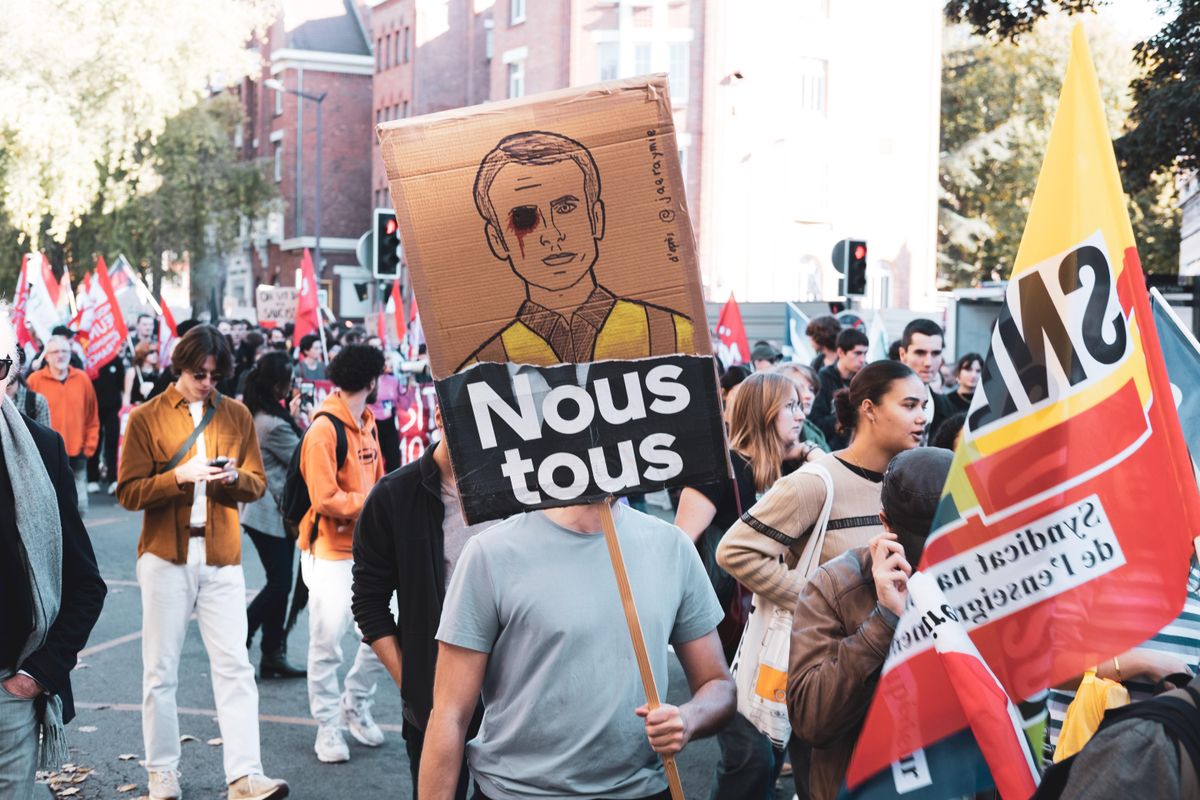Walkouts put Macron on the spot
France’s notoriously strike-o-phile public sector unions called a nationwide walkout on Tuesday, demanding higher wages in response to high inflation. The move, which mainly affects public transport and trains, comes amid weeks-long strikes by workers at major oil companies and nuclear plants. Although inflation in France has softened compared to other Western European nations, the country is still seeing its fastest price increases since the mid-1980s. For President Emmanuel Macron, who was reelected in April, the strikes and protests are a taste of the troubles he may face in the coming months. His 2023 budget is caught in a parliamentary crossfire as MPs on the right and left try to cram in more spending and larger tax increases than Macron wants. Meanwhile, winter is fast approaching, with uncertain consequences for the French public’s energy bills – though the Parisian parkour set is doing its graceful best to address the problem every night. And Macron is still aiming to push through a major — and deeply unpopular — pension reform before next spring.
Xi is planning a power play
Xi Jinping has been widely expected to use the 20th congress of China's ruling Communist Party this week to appoint his allies to most top positions. But now we're learning that he might do a bigger-than-expected overhaul by changing up four of the seven members of the elite Politburo Standing Committee. The biggest name likely to join China's highest decision-making body is Shanghai party boss Li Qiang, whom Xi wants to elevate despite bungling the city's COVID lockdown earlier this year. Li could even replace Li Keqiang (no relation) as premier — No. 2 rank in the CCP — instead of the (sort of) reform-minded Wang Yang, an earlier frontrunner for the gig. If Xi follows through on these plans, China's leader will face zero elite party resistance to pursue his agenda and stay in power indefinitely. But having a trusted lieutenant as premier might also encourage Xi to delegate some authority to Li, who would become more influential than his predecessor — crucial for managing the economy, traditionally the premier's job. Keep an eye out Sunday, when the seven most powerful men in China will walk onto the stage at the Great Hall of the People in Beijing.
Headscarf head-scratcher as Iranian female climber returns home
Where is Elnaz Rekabi? That’s a question that has dominated headlines in recent days, after the female Iranian competitive climber drew global attention this weekend by competing in South Korea without a headscarf. Iranian women are required to wear the hijab in public — even when they compete abroad. Rekabi was feared to be missing, but the South Korean and Iranian governments had confirmed that she was en route home with her teammates. On Tuesday, an Instagram post on her account said her hijab fell off "inadvertently” during the competition and that it was a matter of “bad timing.” It’s unclear who wrote the message, or under what circumstances. But the incident coincides with her country being in the throes of protests over the in-custody death of a woman who was arrested for having her hair uncovered. And it echoes the 2021 controversy surrounding Chinese tennis star Peng Shuai, who disappeared for weeks after accusing a high-ranking Chinese official of sexual assault. Hundreds of Rekabi’s supporters greeted her with cheers when the athlete arrived in Tehran early Wednesday.
A new phase in Ethiopia's civil war?
Almost two years into its war with the independent Tigray People’s Liberation Front, Ethiopia’s central government has taken control of a key city in the northern Tigray region. Shire, home to around 160,000 people, many of whom fled conflict in other parts of Tigray, is a strategic win that could help the government make inroads toward Mekelle, the Tigrayan capital. The city also has an airport that Prime Minister Abiy Ahmed may be hoping his forces can use as a launchpad for drone strikes. Peace talks under the auspices of the African Union were recently postponed due to logistical issues; both sides had reportedly agreed to attend, but there are doubts over the political will to make progress. On Monday, UN Secretary-General António Guterres said the situation is “spiraling out of control” and called on both sides to back down. A government blockade has long prevented crucial humanitarian aid from getting through to desperate Tigrayans – with a staggering 89% of its 6 million people lacking consistent access to food. Since fighting began in late 2020, both sides have been accused of human rights abuses. The US, which has brokered several ceasefires that ultimately collapsed, says it backs the AU’s plan for talks, but critics question whether the union can really broker peace.This article comes to you from the Signal newsletter team of GZERO Media. Sign up today.








